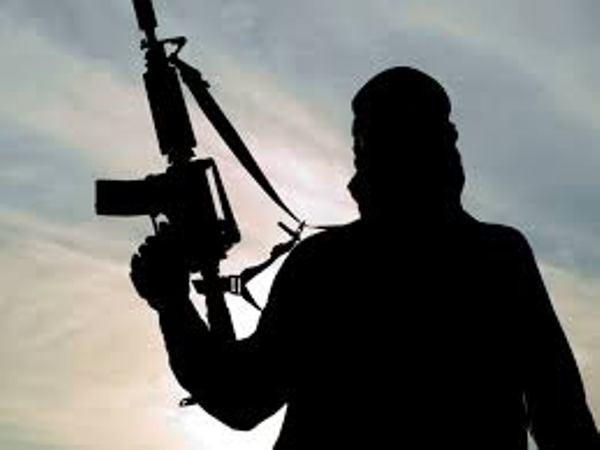Critics of US-Taliban deal say militants can't be trusted
Intelligence that Afghan militants might have accepted Russian bounties for killing American troops did not scuttle the U.S.-Taliban agreement or President Donald Trump's plan to withdraw thousands more troops from the war.

- Country:
- United States
Intelligence that Afghan militants might have accepted Russian bounties for killing American troops did not scuttle the U.S.-Taliban agreement or President Donald Trump's plan to withdraw thousands of more troops from the war. It did give critics of the deal another reason to say the Taliban shouldn't be trusted.
The bounty information was included in Trump's president's daily intelligence brief on Feb. 27, according to intelligence officials, and two days later, the US and Taliban signed an agreement in Qatar. The agreement clears the way for America to end 19 years in Afghanistan and gives Trump a way to make good on his promise to end U.S. involvement in what he calls “endless wars.” On March 3, three days after the agreement was signed, the president had a 35-minute phone call with Mullah Abdul Ghani Baradar, a co-founder of the Taliban and head of their political office in Qatar. After reports of the bounties broke in late June, Secretary of State Mike Pompeo had a video conference with Baradar to make it clear that the U.S. expects the Taliban to live up to their commitments, Under the agreement, the U.S. will pull all its troops out of Afghanistan by May 2021. So far the US has reduced US troop presence in Afghanistan from 12,000 to 8,600 — a target reached ahead of schedule. Now, Trump is considering when and how quickly to further shrink the U.S. military footprint. For its part, the Taliban committed to reducing violence, cutting ties with al-Qaida and sitting down with other Afghans to craft a political road map for their country's future. The Taliban have pledged to ensure that the areas they control — about half the country at this time — are not used by militant groups to target the U.S. and its allies.
Critics of the deal like Rep Mike Waltz, R-Fla., say the agreement is simply a “cover for withdrawal.” “I have serious concerns with how this agreement has been pursued," Waltz said. "The Taliban has shown repeatedly — through violence and bombings both before and after the deal was signed — that they are not serious about adhering to their end of the bargain.” The White House insists the president was not aware of the intelligence but that the administration responded to the information to protect troops. Administration officials say Russia — along with other countries, including Iran — have been providing the Taliban money and guns for years, although bounties would signal stepped-up Russian aggression. Military experts note that the Taliban didn't need any monetary incentive to kill Americans. They also point out that the US worked against the Soviets in the late 1980s, providing militants with shoulder-held anti-aircraft Stinger missiles, which turned around the course of the war and sped-up negotiated Soviet withdrawal from Afghanistan.
“Bounties or not, what we judge the Taliban on is whether they honour the deal,” said Scott Smith, an expert on Afghanistan peace processes with the US Institute of Peace. Both Republican and Democratic lawmakers, defence officials and Afghan experts claim the Taliban has not taken steps to live up to the now four-month-old agreement and they are sceptical the Taliban will ever break with al-Qaida, which conducted the 9/11 attacks.
The US general overseeing American military operations in Afghanistan, Marine Gen Frank McKenzie, said in mid-June that he is dubious of the Taliban's intentions to fulfil its commitments, suggesting that he would not favour a rapid US withdrawal. McKenzie said it is an open question whether the Taliban will keep Afghanistan from being the launchpad for attacks on the U.S. “They have not yet completely made that case," McKenzie said, adding that "time is now beginning to grow short.” Mike Morell, former CIA acting and deputy director, told the House Homeland Security Committee's intelligence and counterterrorism panel on June 24 that the Taliban is militarily and politically stronger than at any time since 2001 when the Taliban refused to hand over al-Qaida leader Osama bin Laden, who orchestrated the 9/11 attacks.
“I believe that the Taliban, in its peace negotiations with the United States, has told us what we want to hear in order to encourage us to leave the country,” Morell said.
(This story has not been edited by Devdiscourse staff and is auto-generated from a syndicated feed.)
ALSO READ
Pathirana's availability against KKR subject to fitness: CSK bowling consultant
MIT, MAHE Launches "HBSF-MAHE EduEmpower Scholarship" for B. Tech Aspirants: an Initiative Anchored by an Alumnus of MIT
MIT, MAHE Launches "HBSF-MAHE EduEmpower Scholarship" for B. Tech Aspirants: an Initiative Anchored by an Alumnus of MIT
Iran's foreign minister continues regional tour with Syria
Lok Sabha polls: Chiranjeevi donates Rs 5 crore to Jana Sena party










